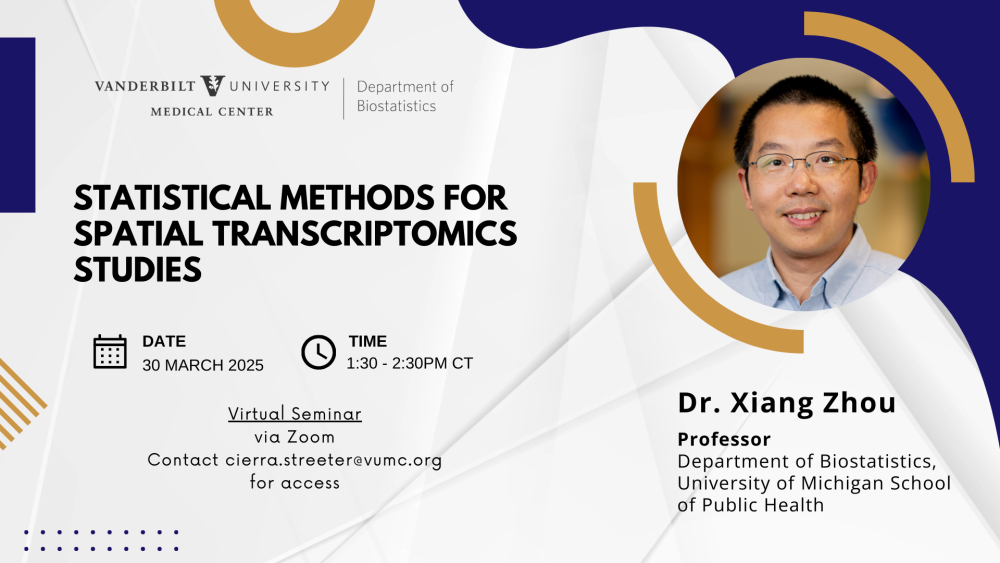
Abstract
Spatial transcriptomics is a collection of groundbreaking new genomics technologies that enables the measurements of gene expression with spatial localization information on tissues or cell cultures. Here, I will discuss a few computational methods that our group has recently developed for analyzing spatial transcriptomics data. Specifically, I will first talk about SPARK, a method that allows for rigorous statistical analysis of spatial expression patterns in spatial transcriptomics. I will talk about a non-parametric extension of SPARK, called SPARK-X, for rapid and effective detection of spatially expressed genes in large spatial transcriptomic studies. If time allows, I will also talk about a spatially informed cell type deconvolution method, CARD, that leverages cell type-specific expression information from single-cell RNA sequencing for the deconvolution of spatial transcriptomics, as well as IRIS, that utilizes single-cell RNA sequencing data for reference-informed detection of biologically interpretable spatial domains, integrating multiple SRT slices while explicitly considering correlations both within and across slices.
Department students and members are invited to meet with Dr. Zhou after the presentation. Sign-up for your small group appointment here.
Dr. Xiang Zhou is a professor in the Department of Biostatistics at the University of Michigan School of Public Health and serves as assistant director of the University of Michigan Precision Health. He has held the rank of professor since 2023. Dr. Zhou joined the department as an assistant professor in 2014, was named the John G. Serale Assistant Professor in 2018-2019, and served as an associate professor from 2019 to 2023. Prior to joining the University of Michigan, he was the William H. Kruskal Instructor in the Department of Statistics at the University of Chicago from 2013 to 2014. Dr. Zhou earned an MS in statistics in 2009 (advisor: professor Scott Schmidler) and a PhD in neurobiology in 2010 (advisor: professor Fan Wang), both from Duke University. He completed a postdoctoral fellowship with professor Matthew Stephens at the University of Chicago from 2010 to 2013. Currently, he serves as an associate editor for the Journal of the American Statistical Association, Annals of Applied Statistics, and PLOS Genetics.